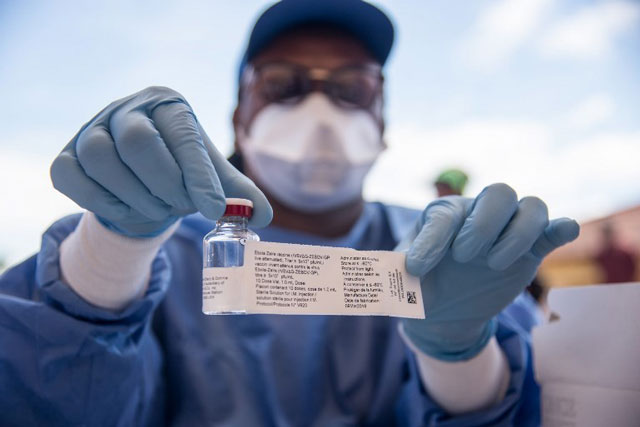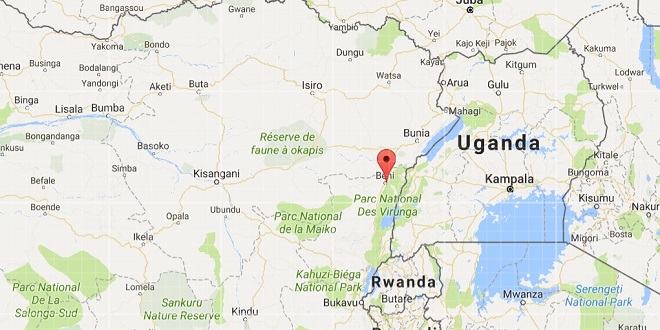
Uganda vaccinates health workers against Ebola, fearing DRC spread
Goma, DR Congo | AFP | Uganda has vaccinated thousands of health workers against Ebola to counter the spread of the deadly virus from its neighbour Democratic Republic of Congo, the health ministers of both countries said Wednesday.
A growing outbreak of Ebola in the Beni region of eastern DR Congo, just 50 kilometres (30 miles) from the Ugandan border, has claimed some 268 lives among a total of 453 cases, according to figures released Tuesday from the DRC health ministry.
Uganda, which last month announced the plan to roll out the vaccinations for frontline health workers over fears the virus could spread, said on Wednesday that it had already given the precautionary treatment to 3,000 people “because we are worried”.
“We have not waited for the first case to arrive. The vaccination is continuing,” said Ugandan Health Minister Jane Ruth Aceng, at a joint briefing with her Congolese counterpart Oly Ilunga in Goma.
Thousands of people cross the 15 border points between the two countries, particularly on midweek market days, she added.
Giving an update on DR Congo’s own vaccine drive, Ilunga said authorities had given the treatment to some 38,000 people.
“If there were no vaccines, half of those would have developed the illness, we would be at tens of thousands of victims and of deaths,” he estimated.
Eastern DR Congo is ravaged by decades of inter-ethnic bloodshed and militia violence, hampering the response to the Ebola outbreak, which is testing a large UN peacekeeping mission deployed in the country.
We appreciate the fact that @MinSanteRDC is working tirelessly to contain the #Ebola outbreak and have the situation under control despite the challenges at the location.
As per the presentation by the DRC team, I am happy to note that the number of #Ebola cases have reduced. pic.twitter.com/CT7T8TVnFg
— Dr. Jane Ruth Aceng (@JaneRuth_Aceng) December 5, 2018
DR Congo last month kicked off campaigning for a crucial December 23 election to choose a successor to President Joseph Kabila, who has constitutionally remained in power as caretaker leader even though his second and final elected term ended nearly two years ago.
Ilunga said each polling station in the affected areas would have an area for disinfection and to check temperatures.
“During the entire epidemic we have not shut down social life. The markets are open, the schools are open, the churches have not closed,” he said.
“We think that the organisation of the elections are not an additional risk.”

 The Independent Uganda: You get the Truth we Pay the Price
The Independent Uganda: You get the Truth we Pay the Price





